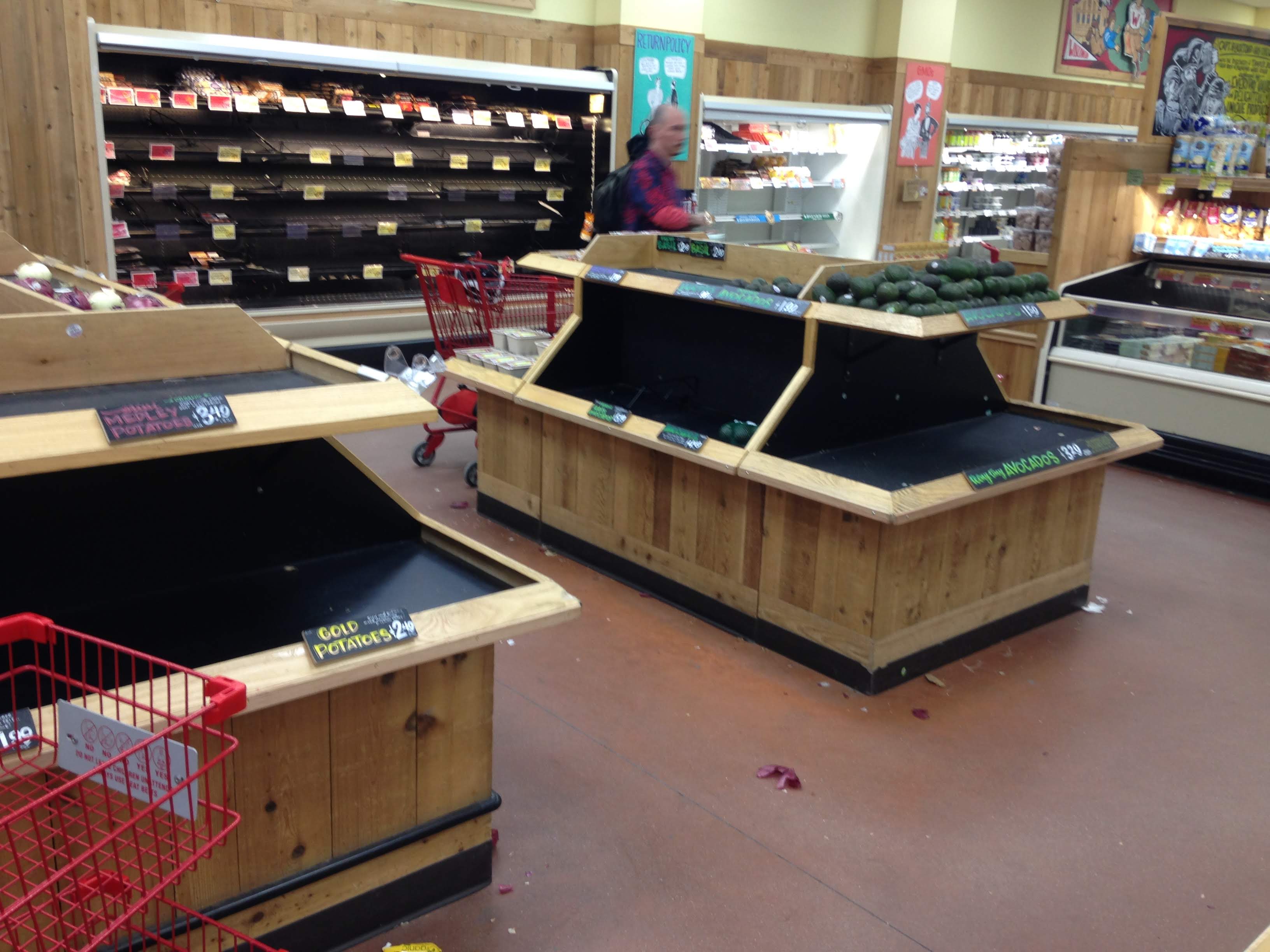COVID-19 notes
Some favorite resources
- WHO situation reports
- Johns Hopkins COVID-19 interactive map
- Atul Gawande’s tweets
- UMN’s Center for Infectious Disease Research and Policy
- The /r/Coronavirus subreddit
Things that make my eyes roll
- Empty shelves on my weekly grocery run

- People’s bizarre obsession over toilet paper
- These assholes:
- Walking past bars/restaurants/shops with the usual number of customers
A rapidly evolving phenomenon
- My perspective on COVID-19 has changed dramatically, and quickly:
- Me five days ago: “It’s a good thing I don’t interact with many old people. Otherwise I might be worried about this coronavirus thing.”
- Me right now: “I think I’ll work from home for the foreseeable future.”
- Despite my technical background, it still took some time to wrap my brain around the exponential behavior of emerging pandemics.
- The old “chess board/grains of rice” fable comes to mind.
- The “fold paper x times to reach a million miles” illustration is also useful.
- The implication is that our “hundreds” statistics will probably reach “hundreds of thousands” or “millions” in short order.
- It also took me a while to realize the discrepancy between confirmed cases and actual cases.
- The gap is especially wide in the US, where testing coverage has been conspicuously poor.
- Between this and the virus’s asymptomatic contagious period, it’s fair to say that the disease is much more widespread than reported, and has “snuck up” on us.
- The at-risk population is larger than I initially thought, too.
- The age threshold is quoted around 50 (lower than I thought; I imagined a number more like 60 or 70)
- Other risk factors: obesity, asthma, cardiac or respiratory conditions.
- Several tenants in my apartment building meet these criteria.
Interesting economic consequences
- Black Monday, Black Thursday
- S&P 500 fell by 28% over the past few weeks.
- For reference: S&P 500 fell by 49% over the course of 16 months during the 2007-2009 recession
- I’m happy that I have some cash on hand to buy stock over the coming weeks.
There are two ways to spin this:
- I’m a greedy opportunist; or
- There will be a lot of rebuilding to do in the wake of this disaster, and I’m happy to commit resources toward that. I’m confident in the American and European economies.
- I’ll let the reader decide which description is more accurate.
- A lot of fragilities have been exposed in the economy. Global supply chains will be disrupted by factory closures and travel bans. Firms typically optimize their operations for efficiency; I hope businesses learn to put more emphasis on robustness in the future. Of course, there have already been multiple opportunities to learn this lesson: 2008, 1970s-80s, 1929.
Interesting political consequences
- Foreign:
- This pandemic has become a point of comparison between authoritarian states (e.g., China, Iran) and liberal democracies (e.g., Italy and the US).
- Authoritarian states are uniquely capable of restricting individual liberties for the sake of the collective. However, they may or may not take this emergency seriously (contrast China and Iran)
- How will liberal democracies fare? Italy was slow to act, and has suffered as a consequence. The US federal government has also been very sluggish — my hope is that local governments and community leadership will help the US pull through this. But frankly, I’m not optimistic. I’ve made some efforts to contact my neighbors and set up channels of communication, for the sake of preparation. But the response has been lukewarm. It seems like they either don’t trust their neighbors, or don’t really care.
- Interestingly, China has been
- This pandemic has become a point of comparison between authoritarian states (e.g., China, Iran) and liberal democracies (e.g., Italy and the US).
- Domestic:
- Donald Trump has responded to COVID-19 much as he has to every other contingency: with bluster, incompetence, and little regard for facts or expertise. His March 11 address was unproductive; it mischaracterized COVID-19 as a disease that could be stopped at the border. In truth, COVID-19 is already here — efforts should be spent slowing its spread.
- The leading Democratic candidates, Biden and Sanders, have each issued statements and plans that make more sense than Trump’s. Biden in particular has demonstrated his ability to call upon a vast array of reputable experts. I would personally feel better about Biden as a candidate if he were capable of stringing together a coherent sentence.
- It looks like the “strong economy” argument for Donald Trump’s reelection has been severely compromised.
Reasons to be grateful
- Once again, the US has benefited from its geographic isolation. The disease has arrived, but its arrival was late in comparison to e.g., Europe. (Which isn’t to say I’m happy about the European situation). Unfortunately, I don’t think we used this advantage very well.
- As bad as COVID-19 is, it’s easy to imagine worse pandemics. The symptoms are described as “flu-like”. Contrast this with other viral diseases the human race has fought for most of its history: small-pox, polio, measles, mumps. Horrifying, painful, disfiguring diseases. We could do a lot worse than “flu-like” symptoms — hopefully we learn appropriate lessons from this pandemic.
- Winter is basically over. We won’t have severe cold to complicate the situation.
- I’d like to think our food supply chains are robust enough that people won’t go hungry.
- Even if the federal government has been slow to act, most schools and employers seem to be doing the right thing. And for what it’s worth, Donald Trump did mention businesses would have access to low-interest credit from the government, to compensate for lost demand over the coming weeks/months.
\( \blacksquare\)